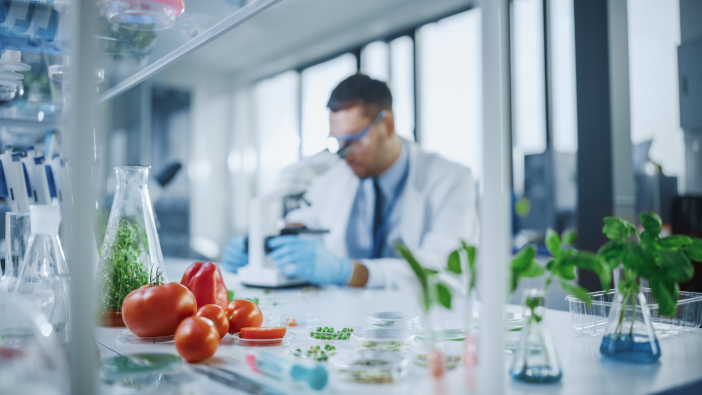Scientists have developed a way to switch on a dormant gene without inserting foreign DNA or creating a genetically modified organism (GMO) – as is the usual approach. This development is the first demonstration of the ‘deletion’ approach to gene editing, in any organism; previous attempts were not as precise or predictable.
The hope is that this technique could be adapted to situations where plant breeders want to turn genes on, for crop improvement, rather than only being able to switch them off.
Using CRISPR/Cas9 genome editing (which normally turns genes off), professor Peter Eastmond and his Rothamsted Research colleagues can bring a gene under the control of an existing gene promoter. The promoter then acts as the gene’s new ‘on-switch’.
Professor Eastmond said: “Achieving ‘gain-of-function’ phenotypes without inserting foreign DNA is an important challenge for plant biotechnologists. It’s a tough thing to do, but we’ve come up with a simple solution to a difficult problem.”
“There are many barriers to commercialisation of GM (genetically modified) crops and so it may be desirable to achieve gain-of-function by other means, if possible.”
Despite the fact the UK and European regulators still consider genome editing as GM, in many countries, including India, China and the US, similar genome editing techniques that don’t insert any foreign DNA – so called SDN1 and SDN2 categories – have already been cleared for use by plant and animal breeders.
Studies by New Zealand’s Pastoral Greenhouse Gas Research Consortium (an industry/government joint venture group) have shown that higher dietary lipid concentrations in cattle can reduce methane emissions by up to 5%, for every 1% increase in lipid content.
Therefore, the newly achieved deletion strategy offers a transgene-free route to engineering traits that rely on switching genes on, such as crops producing high lipid feed stuffs for sheep and cattle, notes professor Eastmond.
Working in the model plant species, Arabidopsis, the team fused the promoter of a non-essential gene that’s switched on in leaves, to the DGAT2 gene that’s normally switched off – resulting in the leaves accumulating vegetable oil.


